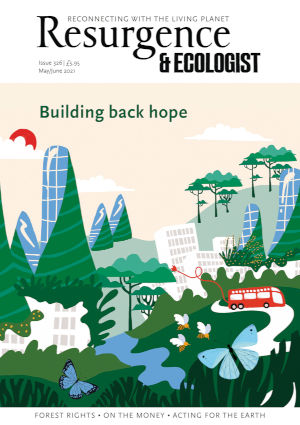It could hardly be more on the money. A book about loneliness released at the moment we shut ourselves into our homes without meaningful contact for months on end. But the timing is merely a coincidence. What this book describes pre-dates our current crisis and may long outlast it. The title The Lonely Century is as gloomy as they come: judging the decades ahead to be defined by our state of loneliness.
Many of us will know the shocking statistics. In 2014, a survey found that an astonishing one in ten people in the UK claimed not to have a single friend. Even more of us will have a sense of this in our own lives, even if we are lucky enough to have meaningful connections. Do you know the names of your neighbours, for example? Half of us don’t, according to a statistic from 2016.
Expanding on this embedded social phenomenon at book length, Noreena Hertz takes an intriguingly broad definition to her conception of loneliness. It is not restricted to the more obvious meaning, whereby one feels friendless, unloved, and so on. She expands it to include a sense of being ignored and shunned by fellow citizens more widely, along with one’s employer and one’s government.
Intuitively, it feels like a stretch to make the word ‘lonely’ draw a connective line between the emotional experience of a friendless immigrant who cannot speak the language of a new city, and the emotional experience of a middle-aged white man who feels the main political parties no longer represent his interests. But we can go along with it, for two important reasons.
First, and perhaps most importantly, the book is a highly readable romp through these issues, peppered with pointers towards solutions to this crisis.
It’s not the sort of book that spends 300 pages diagnosing and picking apart a problem, only to gesture towards solutions in a brief epilogue clearly begrudgingly written at the behest of a publisher. Instead, Hertz weaves inspiring case studies through each chapter, from our work lives to our sex lives, setting out what can be preserved from bygone eras, and what might be emerging to push back against such endemic individualism. Despite the gloomy title, this is a deeply optimistic book.
The second reason we can go along with Hertz’s broad definition of loneliness is that while it feels like it stretches the meaning of the word quite thinly in describing all of these various manifestations of modern political and economic life, the book diagnoses a precise and undeniable cause that unites them all: neoliberalism. Seen from this point of view it becomes a bit easier to trace the connective line between being one of the people without a single close friend and one of the people who feel abandoned by a remote political class.
At heart, the book is a compelling yet fairly conventional critique of neoliberalism. Loneliness, as commonly understood to be an emotional state, is but one manifestation of a society organised around such dogmatic individualism. Other useful words may include ‘atomisation’, when it comes to civic life, and ‘alienation’, when it comes to the workplace. Either way, however far you are willing to stretch the meaning of ‘loneliness’, the picture Hertz paints of modern life is as terrible as it is recognisable.
We didn’t need a lockdown to feel severed from those around us. Neoliberalism had already achieved that, even when we were free to mix with one another as we pleased. Once the current physical restrictions have been lifted, we will have to find new ways to reconnect, rather than return to our fragmented, disassociated lives.






